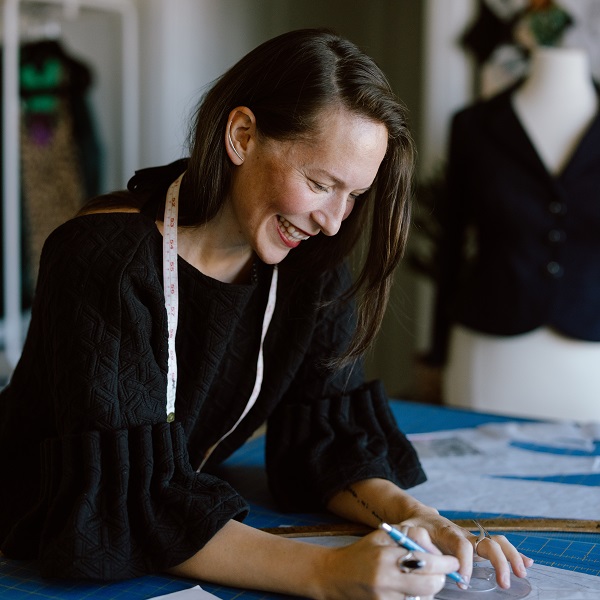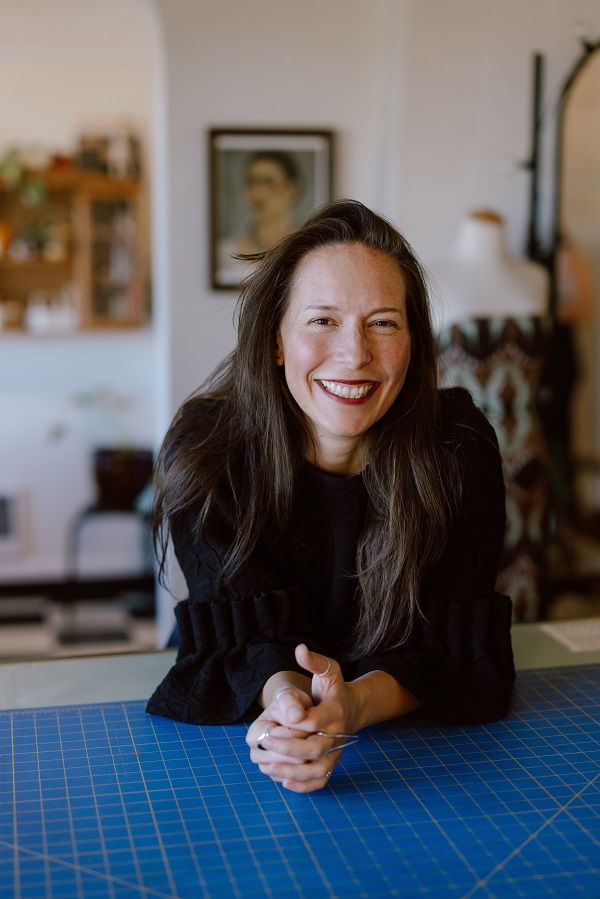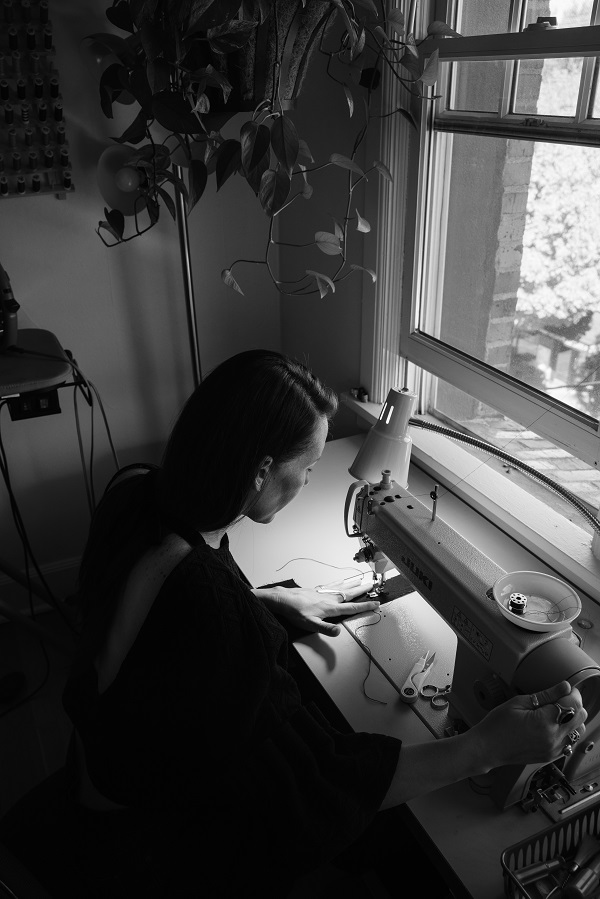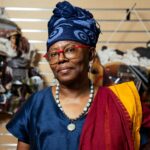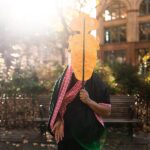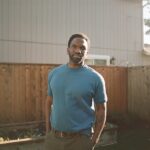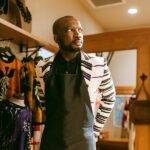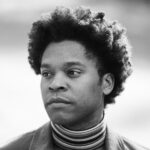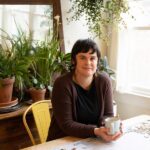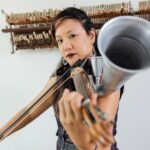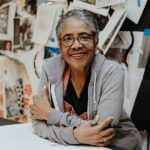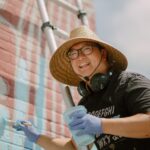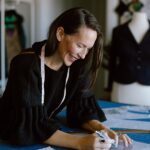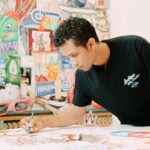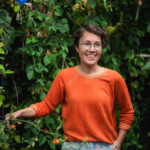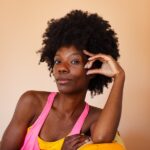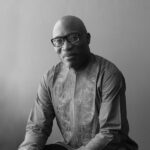Mending the World Within Her Reach
Written by Kristen Millares Young; Photographed by Katy Weaver
Author’s Note: Quotes in italics are sourced from Clarissa Pinkola Estés’s Women Who Run With the Wolves: Myths and Stories of the Wild Woman Archetype.
Myriam Marcela De Anda Méndez is no stranger to darkness. And yet, shadows train our eyes to find the sun.
As a couturier—a fashion designer who tailors custom designs to each client’s specifications—she works under the name Myriam Marcela. “I can create for men, if the vision is there,” she said, and she embraces clients across the gender spectrum. “But women have always been my core of inspiration: my muse and my canvas. My artwork.”
So, too, is fabric. Whether creating a stormy sea-colored dress with painstaking shoulder pleats for Arianne Sutner to wear to the 2020 Oscars or an exquisite white silk cape for museum exhibition, Marcela distinguishes herself with the details produced by her attention, a quality of focus which Simone Weil called “the rarest and purest form of generosity.”
“The beauty of my work is that it’s finding the light inside every person,” Marcela said. “They don’t see it yet, but I see it right away. And then I’m able to bring that light to life. And when they see it, they go out to the world, embracing it and empowered by it.”
About that cape. Named Magdalena, it was featured in the 2022 Frida Kahlo, Diego Rivera, and Mexican Modernism exhibition at the Portland Art Museum. Created in collaboration with textile artist Laura Renée Maier, Magdalena is part of their Wild Woman collection whose eventual sale will benefit global nonprofits dedicated to improving women’s lives.
With Magdalena, Marcela provided Maier with an expanse large enough for her to stitch Kahlo’s 1932 lithograph, Frida and the Miscarriage, onto its back with an antique hand-crank sewing machine.
“The doors to the world of the wild Self are few but precious. If you have a deep scar, that is a door, if you have an old, old story, that is a door.”
Trace the scar, find the fractal. Seek the portal and slip through. An observer of this couturier’s laborious craft might recall Clarissa Pinkola Estes’ canonical book, might recognize and relate to archetypes of the divine feminine recurring like threads throughout Marcela’s work, wherein motherhood, among other themes, is both challenge and inspiration. Just like the fabric itself.
“I see the fabric like it has a soul and a mind,” Marcela said of her preference for funky prints. “It tells me what it wants to be. As soon as I see a swatch, I can either see its future, or I don’t see it, even if I try my hardest looking.”
When she was named Portland FashioNXT’s Emerging Designer in 2014, Marcela was newly a mother, “hidden between walls, feeding kids and doing chores.” (“To everything there is a season,” she adds.) Launching onto the local scene with a big splash, she “did what everybody did” in the retail fashion industry: she made “small, medium, and large” items timed to “the market and the seasonal calendar,” which required that timeless pieces be put on sale just months into their retail existence.
“I found myself being very unhappy,” Marcela said. She didn’t like that traditional sizes could exclude women from her clothing. And then her father, who has since passed away, became very ill. She took sewing work with her to Mexico to be present for him, stitching that pain into brightly colored embroidery on a custom bomber jacket.
Back in Portland, Marcela unveiled Wild Woman, including that white silk cape with handmade patchwork trim and harness clasps to make manifest the many contraptions that Frida Kahlo wore under her clothing to hold her body together after the streetcar accident left her disabled and in lifelong agony. In another piece from the collection, a tailored tuxedo jacket, Marcela crafted meticulously batted folds designed to represent the backbone, an inspiration she took from the Women’s March in 2017.
“It’s important,” she said, “to come down to the root of why I did that vertebrae or created Wild Woman: Unity Across Borders; walls won’t stop us from collaborating and reaching out to our neighbor; and we are all equal at the backbone, regardless of gender, color, race, religion.

